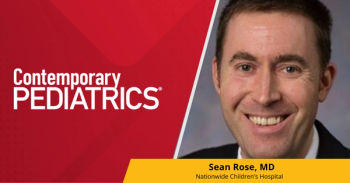
Reaction to FDA approved dupilumab for eosinophilic esophagitis in children
Vivian Hernandez-Truillo, MD, FAAP, FAAAAI, FACAAI; and Theresa Bingemann, MD, provide reaction and commentary regarding recently FDA-approved dupilumab to treat EoE in pediatric patients aged 1 to 11 years.
On January 25, 2024, the
Expedited under the FDA's Priority Review designation, the approval expanded the federal agency's initial approval for EoE in patients aged 12 years and older, who weigh at least 88 lbs (40 kg).
In the transcript below, Vivian Hernandez-Trujillo, MD, FAAP, FAAAAI, FACAAI, board certified allergist/immunologist, clinical professor, Florida International University Herbert Wertheim College of Medicine; director, Division of Allergy & Immunology, fellowship training program director, Nicklaus Children's Hospital; founder, Allergy and Immunology Care Center, Miami, Florida, provides commentary and reaction to the approval of dupilumab.
In addition, Theresa Bingemann, MD, associate professor of pediatrics and medicine, program director, Allergy and Immunology Fellowship, University of Rochester School of Medicine and Dentistry, shared thoughts on the approval.
Vivian Hernandez-Trujillo discloses she has participated in advisory boards with Regeneron and Sanofi.
Vivian Hernandez-Trujillo, MD, FAAP, FAAAAI, FACAAI:
I am excited for our young pediatric patients with EoE to have a new FDA-approved treatment option. This is a safe treatment option for children as young as 1 year old. The weekly injection decreases the underlying inflammation in EoE. Histologic remission was seen in 1/2 to 2/3 of patients, and this is important in preventing the long-term complications associated with inflammation in EoE.
This is an important approval, as treatment of EoE has been very limited, especially in the youngest patients. The disease affects the growth of children and leads to abdominal pain, difficulty swallowing, choking, vomiting, and can lead to strictures. Due to these, pediatric patients may not grow well or even have failure to thrive. I have seen that the burden of the disease affects both physical and mental health. This treatment gives families of the youngest pediatric patients another option for a disease that is, often, challenging to treat.
Theresa Bingemann, MD:
This approval serves an unmet need. This provides another option for patients who are still symptomatic on current treatments. It also adds another treatment to the armamentarium for the treatment of EoE. This gives families more options to decide what treatment fits best with their goals and values. Improved treatment may reduce the feeding difficulties that are often seen in the youngest kids.
EoE in the youngest patients is associated with food refusal which can impact weight gain, nutrition, and the development of appropriate feeding. When children are not exposed to a wide enough variety of food textures and consistencies, it may lead to feeding difficulties and the need for feeding therapy.
Uncontrolled symptoms are hard for kids and parents alike. They have a significant negative impact on quality of life. Hopefully, having another treatment option in this age group will improve quality of life for families. Also, since the majority of patients have other atopic conditions like asthma and atopic dermatitis, secondary benefits may be seen.
The other benefit is that the side effect profile is generally favorable in this group which may also help parents feel more comfortable with this treatment option.
Reference:
Fitch, J. FDA approves dupilumab for eosinophilic esophagitis in children aged 1 to 11 years, Contemporary Pediatrics. January 25, 2024. Accessed February 1, 2024.
Newsletter
Access practical, evidence-based guidance to support better care for our youngest patients. Join our email list for the latest clinical updates.






